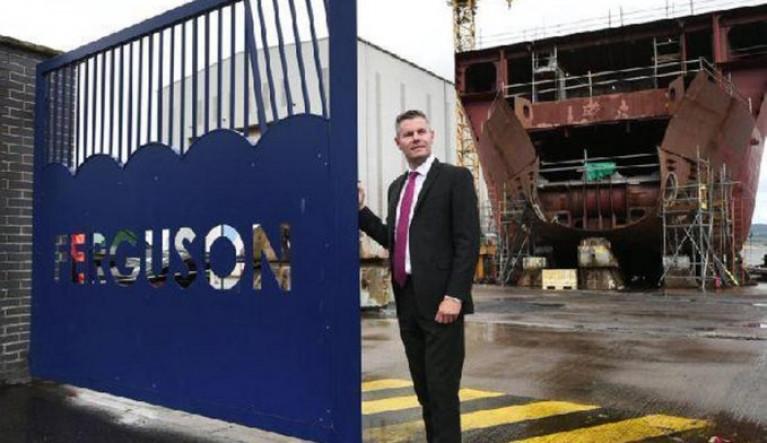Shipyard Ferguson Marine which is owned by the Scottish Government, has ploughed nearly £3m into two companies without going to competitive tender to help resolve the fiasco over the delivery of two new (island) lifeline ferries, the Herald on Sunday can reveal.
A £2.12m contract has been given to an offshore company to complete even more design changes for one long delayed vessel due to service Scotland's busiest ferry crossing which Afloat.ie adds is to the Isle of Arran, where the 'year-round' operated Ardrossan-Brodick route is the nearest CalMac crossing to N.Ireland.
The taxpayer-funded award has been made to Isle of Man-based International Contract Engineering Ltd to supply engineering servies for the stalled construction of MV Glenn Sannox to "correct and complete" the design.
The Isle of Man, a self-governing territory that is part of the British Crown but enjoys separate autonomy, since its days as an Edwardian seaside resort has more recently has been accused of selling companies' escape from taxes and transparency.
Details of the taxpayer spend comes after it emerged £777,500 was given to Kirkintilloch-based Alliance Project Controls Ltd to supervise the construction work. That contract also did not go out to competitive tender.
For further reading on this ongoing shipyard saga story click here.


























































